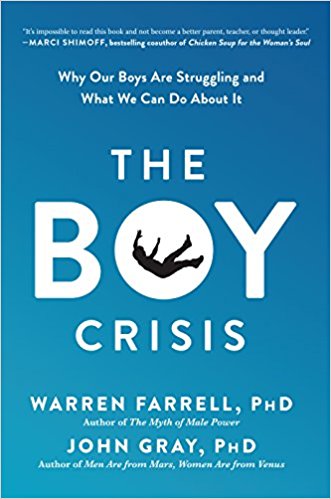![]()
Student agreed to be expelled
Would have lost classes otherwise
Lawyer critical of Ontario policy
Toronto Star, LOUISE BROWN, EDUCATION REPORTER, January 7, 2004
In what seems like an academic Catch-22, a Toronto teen accused of assault last year agreed to be expelled so she could continue her studies rather than fight the expulsion but lose access to classes, her lawyer says.
The girl, whose charges were thrown out of court last month because of "sloppy" police work, spent the last four months of Grade 10 and the first four months of Grade 11 in a small, strict program for expelled students away from her neighbourhood school for no reason, lawyer Paula Rochman said.
Add to that the two harrowing weeks the girl spent in jail awaiting bail, and the whole experience has changed the young woman's life, she said in an interview yesterday.
"I couldn't believe it — she had to agree to being expelled in order to continue her studies, which she really wants to do and go on to university," said Rochman, who describes the teen as a "wonderful student" who had not been in trouble before being involved in a brawl outside Oakwood Collegiate Institute last February in which two students were injured.
In a ruling Dec. 22, Madam Justice Sheila Ray of the Ontario Court of Justice stayed aggravated assault and weapons charges against the student, who is now 17, citing "misleading" and "embellished" accounts by the police officer investigating the incident.
Toronto police Chief Julian Fantino has ordered an investigation into the case, and the Toronto District School Board is expected to announce today whether the student will be readmitted to a regular public school to finish her schooling and have the expulsion wiped from her school record.
Under Ontario's Safe Schools Act, students who have been expelled from public school may carry on studying at a special "strict-discipline" school paid for by Queen's Park in the hopes of returning to the regular system. If they oppose the expulsion, however, their academic status is placed in limbo and they're not eligible for the special program.
Rochman's client passed Grade 10 last year in the program, called the Strict Discipline Demonstration Project, which she described as essentially a supervised correspondence course above a downtown restaurant.
The program, in its third year as a province-run pilot project, is meant to help expelled students avoid a one-way ticket to a dead end, said Bruce Cameron, central co-ordinating principal of school services for the Toronto public board.
Cameron would not comment on this case but said "if there was a clear sense there had been a miscarriage along the line, there would certainly be a willingness to take measures to try and deal with that."
TEDx Dr Warren Farrell
TEDx - The Boy Crisis: Why Our Boys Are Struggling and What We Can Do About It
One of the foremost speakers and thinkers on gender issues
It's a crisis of education. Worldwide, boys are 50 percent less likely than girls to meet basic proficiency in reading, math, and science.
It's a crisis of mental health. ADHD is on the rise. And as boys become young men, their suicide rates go from equal to girls to six times that of young women.
It's a crisis of fathering. Boys are growing up with less-involved fathers and are more likely to drop out of school, drink, do drugs, become delinquent, and end up in prison.
It's a crisis of purpose. Boys' old sense of purpose-being a warrior, a leader, or a sole breadwinner-are fading. Many bright boys are experiencing a "purpose void," feeling alienated, withdrawn, and addicted to immediate gratification.
So, what is The Boy Crisis? A comprehensive blueprint for what parents, teachers, and policymakers can do to help our sons become happier, healthier men, and fathers and leaders worthy of our respect.

Why boys are in trouble
Boys have been painted as the bad guys in the push to encourage girls to succeed, leaving many young men feeling confused and alienated, wondering what they did wrong
The Associated Press
January 5, 1999
According to psychologist and author William Pollack, 'sports are the one arena in which many of society's traditional strictures about masculinity are often loosened, allowing boys to experience parts of themselves they rarely experience elsewhere.'
When Harvard Medical School psychologist William Pollack administered a test to a group of 150 teenaged boys a few years ago, the results were shocking.

The Boy Crisis Book
The Boy Crisis: Why Our Boys Are Struggling and What We Can Do About It
Authors- Waren Farrell PhD and John Gray PhD
What is the boy crisis?
It's a crisis of education. Worldwide, boys are 50 percent less likely than girls to meet basic proficiency in reading, math, and science.
It's a crisis of mental health. ADHD is on the rise. And as boys become young men, their suicide rates go from equal to girls to six times that of young women.
It's a crisis of fathering. Boys are growing up with less-involved fathers and are more likely to drop out of school, drink, do drugs, become delinquent, and end up in prison.
It's a crisis of purpose. Boys' old sense of purpose-being a warrior, a leader, or a sole breadwinner-are fading. Many bright boys are experiencing a "purpose void," feeling alienated, withdrawn, and addicted to immediate gratification.
So, what is The Boy Crisis? A comprehensive blueprint for what parents, teachers, and policymakers can do to help our sons become happier, healthier men, and fathers and leaders worthy of our respect. Read More ..

Health Canada Publication
The Invisible Boy: Revisioning the Victimization of Male Children and Teens
"... the existence of a double standard in the care and treatment of male victims, and the invisibility and normalization of violence and abuse toward boys and young men in our society.
Despite the fact that over 300 books and articles on male victims have been published in the last 25 to 30 years, boys and teen males remain on the periphery of the discourse on child abuse.
Few workshops about males can be found at most child abuse conferences and there are no specialized training programs for clinicians. Male-centred assessment is all but non-existent and treatment programs are rare. If we are talking about adult males, the problem is even greater. A sad example of this was witnessed recently in Toronto. After a broadcast of The Boys of St. Vincent, a film about the abuse of boys in a church-run orphanage, the Kids' Help Phone received over 1,000 calls from distraught adult male survivors of childhood sexual abuse. It is tragic in a way no words can capture that these men had no place to turn to other than a children's crisis line."
American Psychological Association
Dating Violence Statistics in the United States
Nearly one in 10 girls and one in 20 boys say they have been raped or experienced some other form of abusive violence on a date, according to a study released Sunday at the annual meeting of the American Psychological Association.
![]()
The mean T-shirt: From the Stupid Factory
Todd Goldman says his popular boy-bashing T-shirts are simply funny.
So why are retailers having second thoughts? Read More ..

Why boys are in trouble
Boys have been painted as the bad guys in the push to encourage girls to succeed, leaving many young men feeling confused and alienated, wondering what they did wrong
The Associated Press
According to psychologist and author William Pollack, 'sports are the one arena in which many of society's traditional strictures about masculinity are often loosened, allowing boys to experience parts of themselves they rarely experience elsewhere.'
When Harvard Medical School psychologist William Pollack administered a test to a group of 150 teenaged boys a few years ago, the results were shocking.
![]()
Where the boys are
The Globe and Mail
February 1, 2003
Academically, boys across the country are lagging behind the girls, but a Montreal public school has seen dramatic improvement by separating the sexes in classes. It allows teachers to tailor curriculum and style to suit each sex. The result? The number going on to college has nearly doubled. INGRID PERITZ reports
MONTREAL -- The teenage girls at James Lyng High School like to flirt with boys. They like to tease them, joke with them, even date them sometimes. But attend class with them? As the giggling girls in one math class this week might say, "Gross."
Luckily, they don't have to. Coed James Lyng splits boys and girls up at the classroom door. The division of the sexes is credited with helping turn a faltering inner-city high school into an education success story.


